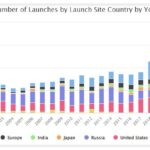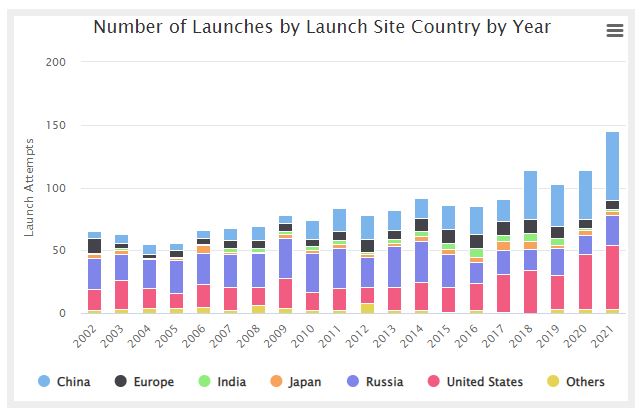2008
Number of Launches by Launch Site Country per Year
Mass Launched by Intended Orbit
… Thank you for visiting The Space Report! The Authoritative Guide to Global Space Activity, Packed with Over a Decade of Data, Resources, and Information. VIEW SUBSCRIPTION PLANS Username Password Remember Me Forgot Password
European Space Industry Workforce by Country 2000 – 2020
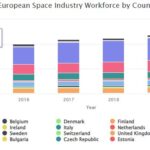
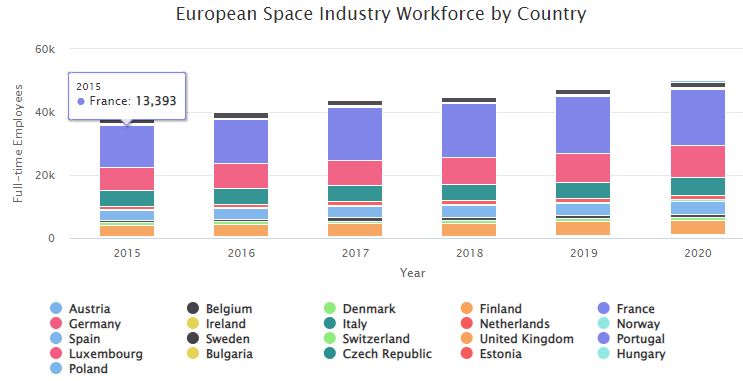
Stacked bar chart showing a twenty-year look at the European space industry workforce by country 2000 – 2020
NASA Civil Servant Workforce 2008-2017
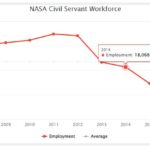
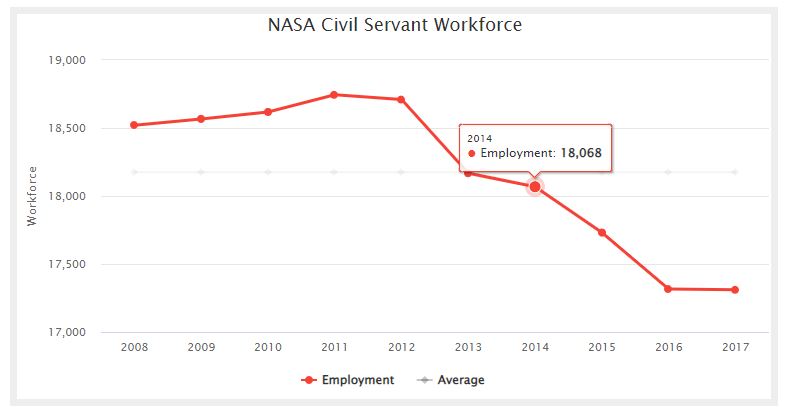
NASA Civil Servant Workforce chart showing the average and actual employment for the years 2008 through 2017.
2008 – Demographics
Women constituted a majority of students who received post-secondary degrees. In 2006, some 58% of all bachelor’s degrees were awarded to women, up from 51% in 1986. In degree fields critical to the space industry, however, women are still woefully underrepresented.
2008 – Degrees Awarded
Note: This exhibit is from The Space Report 2009. Please refer to this year’s exhibits for the most current data as numbers may have been revised since this edition was published.Between 1986 and 2006, bachelor’s degrees awarded in these three space-critical fields fell by 8%, dropping from 141… Thank you for visiting The Space Report!…
2008 – Post-secondary STEM Education
New manpower, especially the recruitment of talented college graduates with degrees in such fields as astronomy; aeronautical and astronautical engineering; atmospheric, Earth, and space sciences; and mathematics, will be key to ensuring the health and vitality of the country’s space industry. What follows is an overview of a few major trends in postsecondary science and engineering education.
2008 – TIMSS
To gauge how U.S. elementary and middle school students compare with other students in math and science, the results of a test administered by the U.S. Department of Education, known as Trends in International Mathematics and Science Study (TIMSS) provide a standardized global measure. The most recent test was administered in 2007.
2008 – NAEP
Starting at the 4th grade level, only 39% of students tested proficient or higher in mathematics in 2007, according to the National Assessment of Educational Progress (NAEP), also known as the Nation’s Report Card. . .
2008 – Top-level Trends
“Many young people today with a technical bent are more entranced with the Internet or biotechnology than space exploration. Space travel, after all, was a fascination of their parents’ generation,” noted a February 2003 Wall Street Journal article on recruiting challenges confronting NASA.
